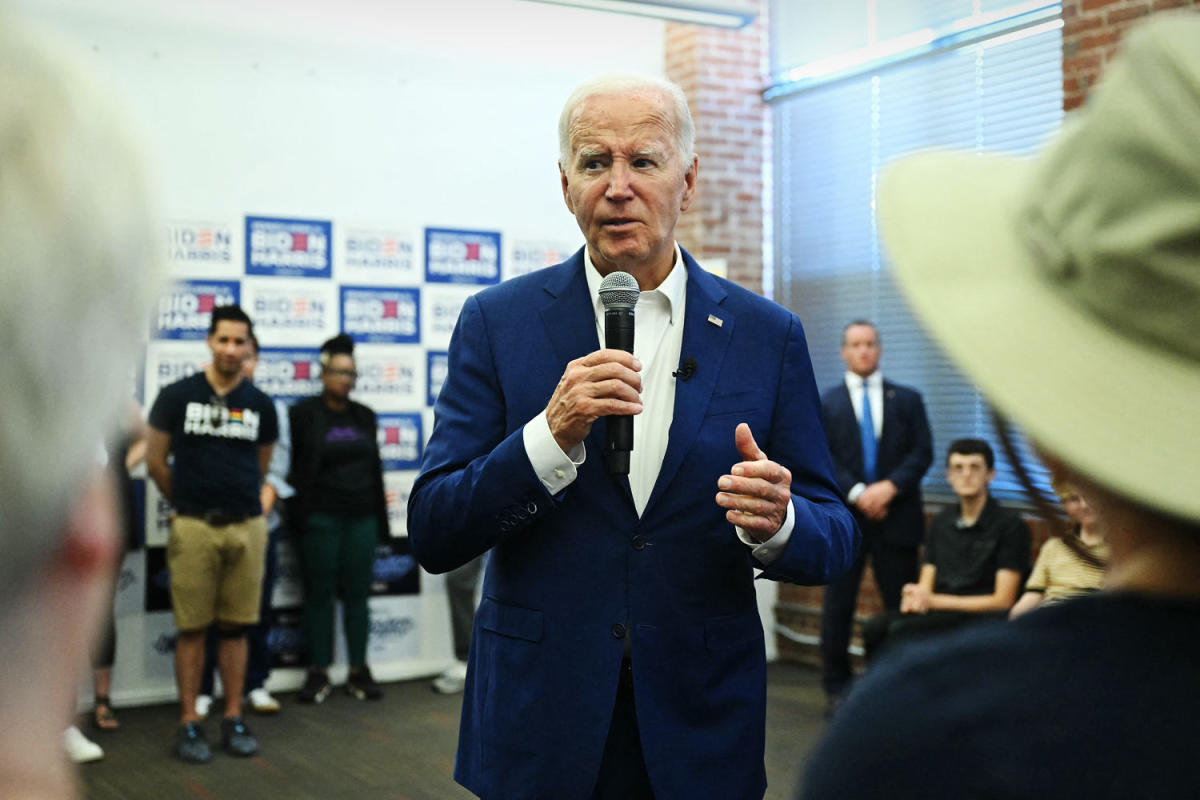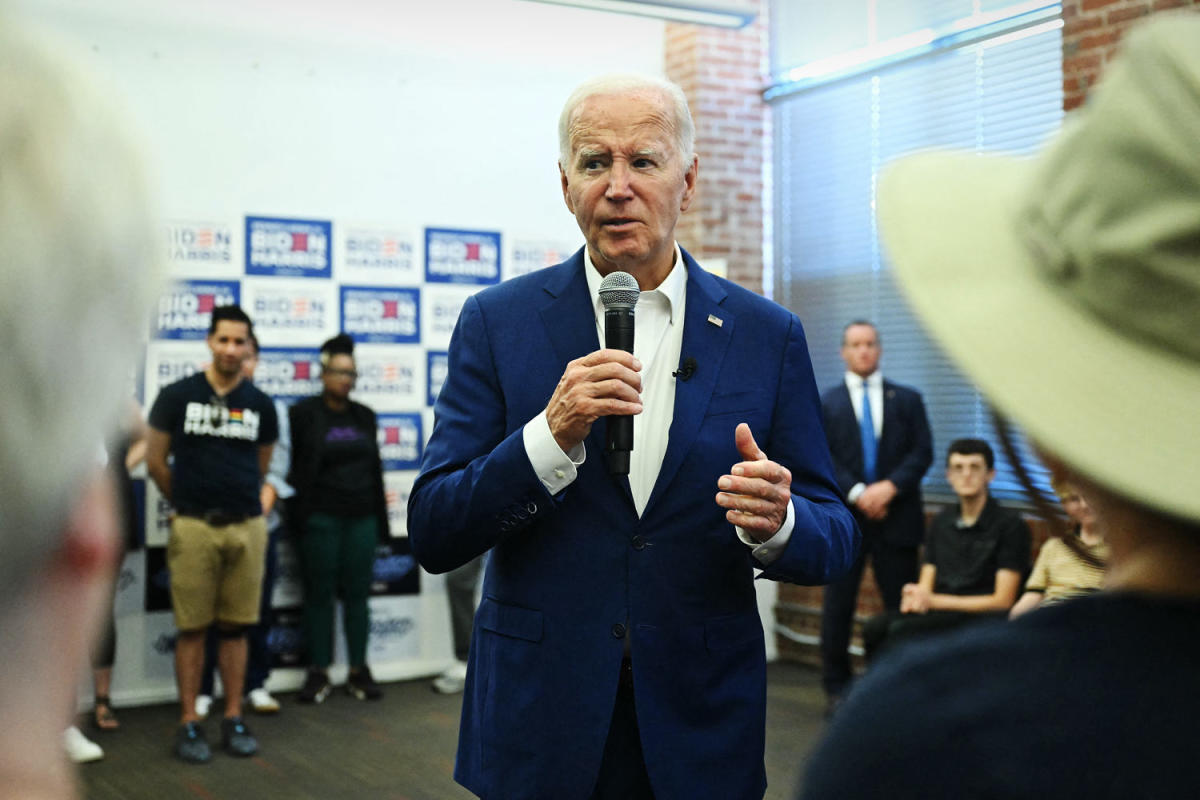
In the seven days following his awful debate performance, President Joe Biden adopted a low-key approach. He held no press conferences. He sat down for no major on-air interviews. He was slow to call his congressional allies. The incumbent Democrat appeared to be operating under a dubious assumption: The uproar would fade, the public conversation would shift, and the race would return to “normal.”
If that was Biden’s assumption, it was a mistake: The number of Democratic lawmakers, officials and donors urging the president to withdraw from the race grew considerably as the incumbent waited for the story to blow over.
And so, he’s clearly adopted a new posture. NBC News reported:
“I’m getting so frustrated by the elites in the party. … They know so much more,” Biden said, mockingly. “If any of these guys don’t think I should run, run against me. Go ahead. Announce for president — challenge me at the convention!”
The incumbent added that he believes “average” Democratic voters want him to stay in the race — a conclusion he arrived at after some events in recent days with supporters.
On the one hand, it was a clear message delivered in a high-energy way. On the other hand, it seemed far from ideal to see Biden chastising members of his own party, while complaining about Democratic “elites” — a label the experienced president was apparently applying to his longtime friends and governing partners.
What’s more, it’s worth noting for context that recent polling suggests it’s not just folks attending cocktail parties in Georgetown who believe Biden should stand down.
The call-in appearance on MSNBC dovetailed with a two-page letter sent to congressional Democrats in which Biden argued, among other things, that he won the party’s nominating contests.
“We had a Democratic nomination process and the voters have spoken clearly and decisively,” Biden wrote, referring to his primary and caucus victories. “The voters — and the voters alone — decide the nominee of the Democratic Party,” he added.
“The question of how to move forward has been well-aired for over a week now,” the president’s letter went on to say. “And it’s time for it to end. … Any weakening of resolve or lack of clarity about the task head only helps Trump and hurts us.”
Biden’s strategy, in other words, is rooted in defiance. He’s not addressing the concerns of his intraparty critics, so much as he’s telling them that the conversation they’ve created is irrelevant: If the president isn’t going to end his candidacy, the argument goes, Democrats waiting for him to pass the torch shouldn’t waste everyone’s time with a pointless effort.
This might work, but in my experience, members of Congress don’t like to effectively be told, “Shut up and stop talking about what you want to talk about.”
As for the argument that Biden earned the nomination by way of his party’s nominating process, that’s true. Aside from American Samoa, the president cruised to lopsided victories in every Democratic primary and caucus.
But I’m reminded of the 1980 election.
In case anyone needs a refresher, in 1980, then-Sen. Ted Kennedy challenged then-President Jimmy Carter in a Democratic primary. As the process was just getting under way, the Iran hostage crisis broke, and Carter’s public support initially surged. The incumbent cruised to easy victories in nearly all of the early primaries and caucuses, mostly by wide margins.
But as the nominating fight continued, and developments in Iran dragged on, public support for Carter’s handling of the crisis deteriorated. By the time the June primaries came along, Kennedy was in a vastly stronger position, and as the nominating process wrapped up, he closed out the calendar with several key wins, including a big victory in California.
As the convention drew closer, Kennedy went to party officials with a compelling message rooted in fact: Democratic voters who backed Carter in January’s and February’s contests couldn’t have known what conditions would be like in June and July. It’s not that those contests didn’t count, so much as it was incumbent on the party to recognize the facts that weren’t available to primary and caucus voters months earlier.
If Democrats had it to do over again, Kennedy argued, knowing what the crisis in Iran would do to the president’s national support, the results would have been much different.
And while Kennedy was probably correct, his pitch didn’t work. Party officials stuck to the rules: Carter had earned a clear majority of the delegates, and so he would be the Democratic nominee.
The incumbent soon after lost in a landslide, winning only 49 electoral votes.
Biden’s absolutely right that he received the necessary number of delegates to win the nomination. But if the Democratic electorate had it to do over again, would they make a different choice?
This article was originally published on MSNBC.com
EMEA Tribune is not involved in this news article, it is taken from our partners and or from the News Agencies. Copyright and Credit go to the News Agencies, email news@emeatribune.com Follow our WhatsApp verified Channel





